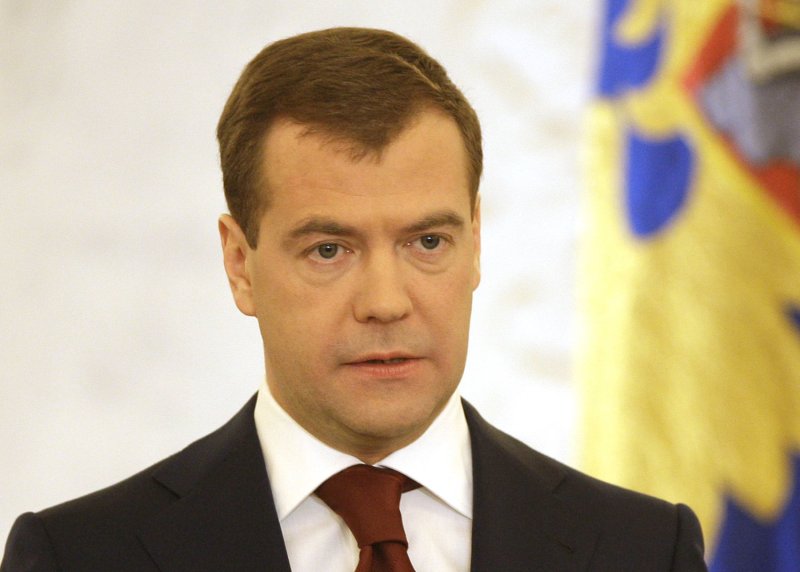Russian President Dmitry Medvedev makes his annual state of the nation address at the Kremlin's St. George Hall in Moscow on November 5, 2008. Medvedev pledged on Wednesday to station new missiles near Poland's border in response to U.S. plans for an anti-missile system and proposed extending the presidential term to six years from four. (UPI Photo/Anatoli Zhdanov) |
License Photo
WARSAW, Poland, Nov. 6 (UPI) -- Poland's foreign minister Thursday condemned Russian President Dmitry Medvedev's threat to place short-range missiles near Poland as misguided intimidation.
"This is yet another of a series of similar statements, but what is disturbing about it is that whereas previously we heard them from (Russian) generals, now we have heard it from the president -- moreover, in his keynote policy speech," Radoslaw Sikorski said.
In a speech to the Russian parliament, Medvedev promised Wednesday to place short-range missiles on Russia's western border if Washington proceeded with its planned missile defense system in Poland and the Czech Republic.
He also said Russia would use radio equipment to jam the Western missile defense system.
Washington asserts the missiles are needed to counter Iran's growing missile threat and the Bush administration says it has invited Russia "to partner with us to defeat this common threat."
Sikorski said Warsaw was surprised by Medvedev's remark since it was previously thought Moscow was "interested in confidence-building measures."
He called Medvedev's threat an "unfriendly act."
Sikorski, who was involved in the Solidarity social movement in the late 1970s and was later educated at Britain's Oxford University, said Medvedev's statement indicated Moscow saw itself "as a rival to NATO," the Russian Information Agency Novosti reported.
"We regret that this sort of thinking prevails in Moscow," Sikorski said.















